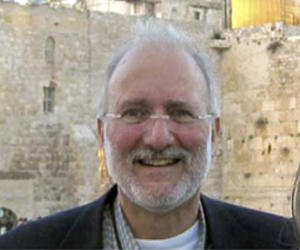U.S.-Cuba ties in balance over jailed American's appeal
- Submitted by: manso
- Politics and Government
- 07 / 21 / 2011

By Marc Frank. HAVANA (Reuters) - Future prospects for improving U.S.-Cuba ties will be at stake when Cuba's highest court hears an appeal on Friday from jailed U.S. aid contractor Alan Gross against his 15-year sentence for crimes against the state.
Gross, 62, was arrested in Havana in December 2009 while working on a secretive USAID-funded pro-democracy program that sought to establish an Internet platform in communist-ruled Cuba, where access to the Internet is tightly controlled.
His detention by Cuba, which accuses Washington of trying to subvert its socialist system by promoting new communications technologies on the island, put a brake on cautious moves by President Barack Obama to foster a better relationship with Havana after decades of Cold War era enmity.
Gross's sentencing in March by Cuban judges to 15 years in prison for crimes against the state dealt a further blow to chances of a significant rapprochement. Washington condemned it as an "injustice" and U.S. officials have made clear further moves to improve ties would require his immediate release.
The aid contractor denies his work in Cuba was hostile to the government there, saying he was only trying to improve Internet connectivity for the island's small Jewish community.
"Friday's hearing affords Alan another opportunity to reiterate, through his Cuban counsel, that his actions on the island were never intended to be -- and in fact never were -- a threat to the Cuban government," Gross's lawyer, Peter J. Kahn, said in statement.
"The family remains hopeful that Cuba's high court will render a decision that will allow Alan to be released immediately, having already served nearly 20 months in a Cuban prison," Kahn added.
Hopes for the American's release have centered on his reported ill health -- his wife Judy says he has lost 100 pounds (45 kg) in jail -- and on the family's direct appeal to Cuban President Raul Castro for a humanitarian pardon on the grounds that both his daughter and mother-in-law have been battling cancer.
Kahn said wife Judy Gross would be unable to attend Friday's hearing in Havana as she was herself recuperating from surgery for an undisclosed ailment.
Local Cuban lawyers, who spoke with Reuters on the condition they were not named, said the Cuban Supreme Court could throw out the lower court's conviction of Gross and let him walk free. But they believed it was more likely to uphold the verdict and, possibly, to reduce the sentence.
Its ruling on the appeal was not expected to come immediately and could even take weeks.
"PROHIBITED" TECHNOLOGY
The U.S. government, whose diplomats in Havana will attend the hearing, said it would continue to use "all diplomatic channels" to press for Gross's release.
"We again call on the Government of Cuba to immediately and unconditionally release Alan Gross," State Department spokeswoman Heide Fulton told Reuters.
"He should be reunited with his family to bring an end to their long ordeal."
A number of high profile U.S. political figures have lobbied the Cuban government for Gross's release, among them former President Jimmy Carter who visited the contractor in jail during a March trip to Cuba soon after his sentencing.
Obama had initially eased U.S. travel restrictions to Cuba and allowed a free flow of remittances to the island as part of measures to increase contacts. But more significant moves to relax long-running U.S. economic sanctions against the island are unlikely without movement in the Gross case.
Many ordinary Cubans seemed to know little about it.
"I do not have enough information to say he is guilty or not, but according to the government he was distributing satellite technology that is prohibited," said Diego, a doorman at a Havana restaurant. He declined to give his last name.
Sources with knowledge of Gross's secretive trial in Havana in March said his team of Cuban and American lawyers argued he should not be charged with "acts against the independence or territorial integrity of the state," a serious crime in Cuba.
His defenders said he did not understand he was working for a U.S. program aimed at promoting political change in Cuba. He admitted entering as a tourist several times to distribute communications equipment to Jewish groups, the sources said.
Cuban authorities tightly control Internet access on the island and Cuba's security services view new communications technology and social media as the latest battlefront in the long ideological war between the two nations.
(Additional reporting by Andrew Quinn in Washington and Rosa Tania Valdes in Havana; editing by Pascal Fletcher and Mohammad Zargham)
Source: http://news.yahoo.com/
Comments